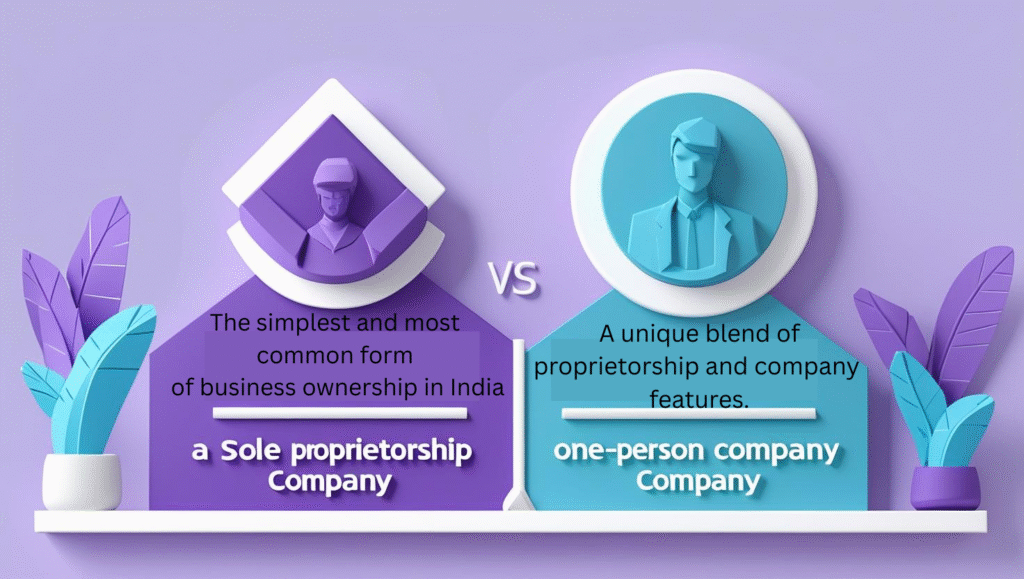Starting a new venture in India is an exciting prospect, but before you dive into product development or marketing strategies, a crucial decision awaits: choosing the right legal structure for your business. For many aspiring entrepreneurs, the primary contenders are the Sole Proprietorship and the One Person Company (OPC). Both offer distinct advantages, particularly for solo founders, but understanding their nuances is key to making an informed choice that aligns with your long-term goals.

The Sole Proprietorship is the simplest and most common form of business ownership in India, particularly for small businesses, freelancers, and home-based ventures. It’s essentially an individual and their business being legally indistinguishable.
Introduced in India with the Companies Act, 2013, the One Person Company (OPC) offers a unique blend of proprietorship and company features. It allows a single individual to form a company, enjoying the benefits of limited liability without the complexities of a traditional private limited company that requires at least two directors and shareholders.
Let’s summarize the key differences to help you make an informed choice:
| Feature | Sole Proprietorship | One Person Company (OPC) |
| Legal Identity | No separate legal identity; owner and business are one. | Separate legal entity distinct from the owner. |
| Liability | Unlimited personal liability. | Limited liability (to the capital invested). |
| Ease of Formation | Very easy; no formal registration for the structure. | Moderately complex; requires registration with MCA. |
| Compliance Burden | Minimal; primarily personal income tax. | Higher; annual filings, audits, MCA compliance. |
| Cost | Very low setup and maintenance. | Higher setup and maintenance costs. |
| Credibility | Lower perceived credibility. | Higher perceived credibility and professionalism. |
| Funding Access | Very limited; difficult to get business loans. | Better than SP, but limited for large investments. |
| Perpetual Succession | No; business ceases with the owner. | Yes; continues with a nominee director. |
| Transferability | Difficult to transfer. | Easier to transfer ownership. |
| Taxation | Owner’s personal income tax rates. | Corporate tax rates; can be beneficial for higher profits. |
The decision between a Sole Proprietorship and an OPC hinges on your specific business goals, risk appetite, and vision for the future.
The choice between a Sole Proprietorship and a One Person Company is a pivotal one for any solo entrepreneur in India. While the Sole Proprietorship offers unparalleled ease and simplicity, its unlimited liability can be a significant deterrent for businesses with growth ambitions or inherent risks. The One Person Company, on the other hand, provides the crucial benefit of limited liability and enhanced credibility, albeit with a higher compliance burden.
By carefully weighing the pros and cons, understanding your risk tolerance, and envisioning your startup’s future trajectory, you can make the decision that best serves your entrepreneurial journey. Remember to leverage the official government resources provided in this guide to ensure you embark on your venture with the right legal foundation. For hassle-free Sole Proprietorship and One Person Company registration and compliance, Filingg.com offers expert services to ensure your business thrives. For more details, contact 7791910007 or visit info@filingg.com today!
WhatsApp us